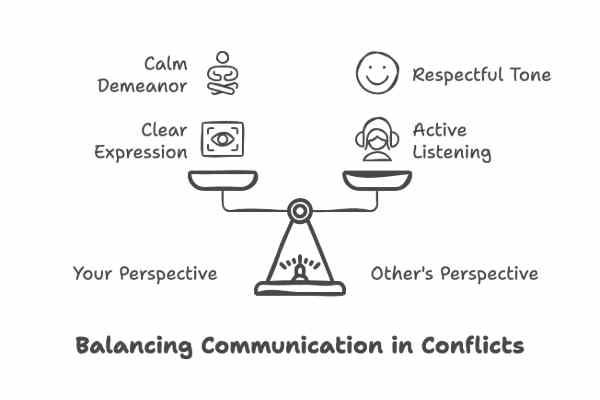Negative self-talk is a pervasive and insidious force that can severely impact our mental well-being, relationships, and personal growth. It’s that inner critic, that voice in our heads that constantly undermines our abilities, worth, and potential. For some, it’s a quiet whisper of doubt. For others, it’s a loud, relentless barrage of harsh judgments and criticisms. Regardless of its volume or tone, negative self-talk can be detrimental to our emotional and mental health, and learning to recognize and combat it is crucial for personal development.
This article will explore the concept of negative self-talk, how to identify it, why it occurs, and most importantly, how to combat it. We’ll also discuss practical strategies and real-life examples to help you build a more positive and compassionate inner dialogue.
What is Negative Self-Talk?
Negative self-talk refers to the critical and often harmful thoughts we have about ourselves. It involves self-criticism, doubt, and inner dialogue that focuses on perceived flaws, failures, or inadequacies. While it’s normal to have self-reflective thoughts, negative self-talk is typically destructive and can spiral into anxiety, depression, and low self-esteem.
This type of thinking often distorts reality. It can lead us to believe things about ourselves that aren’t true or accurate, creating a cycle of self-doubt that erodes our confidence and mental resilience.
Negative self-talk can take many forms, including:
- Catastrophizing: Expecting the worst possible outcome.
- Overgeneralization: Making broad, sweeping conclusions based on a single event or experience.
- Labeling: Identifying yourself by a single negative characteristic (e.g., “I’m a failure” or “I’m not good enough”).
- Filtering: Focusing only on the negative aspects of a situation while ignoring any positives.
- Personalization: Blaming yourself for things that are not entirely within your control.
Example:
Imagine you’ve just made a mistake during a work presentation. Instead of acknowledging the mistake as part of the learning process, negative self-talk might lead you to think, “I always mess up. I’m terrible at this job. Everyone must think I’m incompetent.”
Why Does Negative Self-Talk Occur?
Negative self-talk doesn’t come from nowhere. It often arises from a variety of sources:
1. Childhood Experiences and Upbringing
Many of our beliefs about ourselves are formed early in life. If a person grew up in an environment where they were criticized, neglected, or constantly told they weren’t good enough, these negative messages can become internalized. Over time, this inner critic can become a habitual part of their thought process.
2. Social Comparisons
In the age of social media, it’s easy to fall into the trap of comparing ourselves to others. Whether it’s body image, career achievements, or social status, constant comparisons can lead to feelings of inadequacy and self-criticism. Negative self-talk often stems from the belief that we are falling short of societal expectations.
3. Perfectionism
People who set excessively high standards for themselves are particularly prone to negative self-talk. When they inevitably fall short of these perfectionistic ideals, they often internalize the failure and begin to berate themselves.
4. Past Failures
Past failures or mistakes can become the basis for negative self-talk. When we make mistakes or experience setbacks, it’s easy to judge ourselves harshly and carry that judgment forward into future situations. This kind of thinking creates a negative feedback loop that keeps us stuck.
5. Mental Health Conditions
Certain mental health conditions, such as anxiety, depression, and obsessive-compulsive disorder (OCD), are associated with heightened negative self-talk. These conditions often cause people to fixate on their perceived shortcomings or worst-case scenarios, reinforcing a negative internal narrative.
Also check: Role of Mindfulness in Emotional Healing
How to Recognize Negative Self-Talk
Recognizing negative self-talk is the first step toward overcoming it. Unfortunately, because negative self-talk often happens automatically, we may not be aware of it until it has already taken a toll on our mood or behavior. The key to breaking this cycle is developing awareness and catching these negative thoughts before they can spiral.
Here are some signs that you might be engaging in negative self-talk:
1. Frequent Self-Criticism
If you find yourself constantly criticizing your actions, appearance, or decisions, it may be an indication of negative self-talk. This can manifest as harsh judgments like “I’m not smart enough” or “I’m worthless.”
2. Perfectionistic Thinking
Thoughts like “I have to get everything perfect” or “If I don’t do this flawlessly, I’ve failed” often indicate perfectionism, which is closely linked to negative self-talk.
3. Overthinking or Ruminating
When you get stuck in a loop of overthinking, often dwelling on past mistakes or imagining worst-case scenarios, negative self-talk is usually at the root.
4. Excessive Comparisons
Constantly comparing yourself to others and believing that they are better than you is a clear sign of negative self-talk.
5. Feeling Overwhelmed by Emotions
If negative self-talk leads to feelings of helplessness, frustration, or hopelessness, it’s an indication that your inner dialogue is undermining your mental well-being.
6. Avoidance of Challenges
Negative self-talk can sometimes lead to avoidance. For example, if you think “I’m terrible at this” before even trying something new, it can prevent you from taking healthy risks or facing challenges.
Also check: The Art of Goal Setting
Combatting Negative Self-Talk
Once you’ve recognized negative self-talk, the next step is to actively work on combating it. This is an ongoing process that requires practice, patience, and self-compassion. Below are some strategies to help you challenge and replace your negative thoughts with more constructive and positive ones.
1. Challenge Your Negative Thoughts
The first step in combating negative self-talk is to challenge the validity of your negative thoughts. Ask yourself questions like:
- “Is this thought based on facts or assumptions?”
- “Is there evidence to support this belief?”
- “What would I say to a friend who thought this about themselves?”
- “What’s the worst thing that could happen, and could I cope with it?”
By questioning the accuracy of your negative thoughts, you can start to see them for what they are—distorted, exaggerated, and often untrue.
Example: If you’re thinking, “I always fail,” challenge that thought by reminding yourself of times you succeeded, even in small ways. Recognize that failure is a part of life and does not define your worth.
2. Reframe Your Thinking
Reframing is a cognitive-behavioral technique that involves changing the way you interpret a situation. Instead of seeing things in black-and-white terms, try to look for the gray area, the middle ground, or the lessons to be learned.
Example: If you think, “I’m terrible at public speaking,” reframe it to, “I’m still improving at public speaking, and each experience helps me get better.” Reframing helps you focus on growth and progress rather than perfection or failure.
3. Practice Self-Compassion
Instead of berating yourself when you make mistakes, treat yourself with kindness. Self-compassion involves responding to yourself with the same care and understanding you would offer a friend who is struggling.
Example: If you make a mistake, instead of saying, “I’m so stupid,” say, “Everyone makes mistakes. I can learn from this and do better next time.” Self-compassion allows you to view setbacks as opportunities for growth rather than as evidence of your inadequacy.
4. Use Affirmations
Affirmations are positive, present-tense statements that help to reprogram your mind. By repeating positive affirmations, you can shift your mindset and counteract negative self-talk.
Examples of affirmations:
- “I am capable and worthy of success.”
- “I am learning and growing every day.”
- “I have the strength to handle challenges.”
Start your day by repeating affirmations and notice how they impact your mood and mindset.
5. Practice Mindfulness
Mindfulness involves observing your thoughts without judgment. By practicing mindfulness, you can create distance between yourself and your negative thoughts. Instead of getting caught up in the narrative, you learn to observe your thoughts from a neutral perspective, which reduces their power over you.
Example: When you catch yourself engaging in negative self-talk, simply acknowledge the thought with a neutral statement like, “I’m having the thought that I’m not good enough.” This helps you distance yourself from the thought and prevents it from spiraling.
6. Focus on the Present Moment
Negative self-talk often arises when we ruminate on the past or worry about the future. Focusing on the present moment can help break this cycle. Practice being fully engaged in what you’re doing right now, whether it’s eating, working, or spending time with loved ones.
By grounding yourself in the present, you can reduce the power of negative self-talk and stay focused on the task at hand.
7. Seek Support
If you find that negative self-talk is overwhelming or deeply ingrained, consider seeking support from a therapist or counselor. Cognitive-behavioral therapy (CBT) is particularly effective in helping people challenge negative thought patterns and develop healthier thinking habits.
Conclusion
Negative self-talk can be a powerful force that holds us back from achieving our potential and living our best lives. By recognizing the signs of negative self-talk, understanding its origins, and applying strategies such as reframing, self-compassion, and mindfulness, we can gradually overcome the negative inner dialogue that undermines our confidence and well-being.
With consistent effort and patience, it’s possible to transform your inner critic into a supportive, constructive voice that encourages growth, resilience, and self-empowerment. Recognizing and combating negative self-talk is not about eliminating all critical thoughts, but rather about cultivating a healthier, more balanced perspective on yourself and the world around you.






